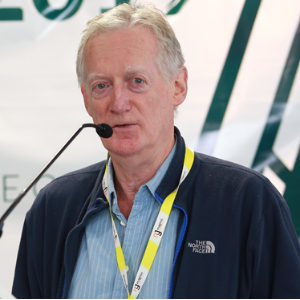Biography:
Jeremy Sweet has spent the last 30 years conducting research on Crop improvement and plant diseases. Much of this work was conducted at NIAB Cambridge studying sustainable crop production, integrated disease management, environmental and agronomic impacts of GM crops, and gene flow to crops and wild relatives. He was coordinator of the UK BRIGHT project which studied herbicide tolerance, and he was also coordinator of the European Science Foundation programme “Assessing the Impact of GMOs” that brought together all the major research groups in this area in Europe. He was a coordinator of the EU SIGMEA project analysing data on gene flow and gene impacts and was a participant in the EU CO-EXTRA programme and the BBSRC Gene flow project. He was work package leader in the GRACE EU project on Systematic Reviewing of the impacts of GM plants and is Vice-Chair of the EU COST action iPLANTA studying RNAi in crop improvement and crop protection. He was an advisory Board member of the EU Pegasus project on GM animals, the EU Price Project on coexistence, the DEMETRA Life project, the EU COST Action on GM trees, the ESEGMO project in Finland and he served on the Steering Committee of the Swiss NFP59 programme on GMOs. He was a member of the EFSA GMO Panel for 12 years until 2018, providing scientific opinions on the risks associated with GMO applications in the EU. He has served as chairman of the Environmental, Post Market Environmental Monitoring and GM Fish Working Groups of the EFSA GMO Panel. He was a member of the GM Insects working group and has developed a number of the EFSA Guidance Documents on ERA and risk management. He was a member of the BBSRC/Phyconet Management Board and participated in the ALGEBRA project on GM algae and in an EFSA study of RNAi GM plants. He is an author in over 50 scientific papers on GMOs, numerous plant pathology papers and of 2 books.
He developed his own consultancy in 2004 and is director of JT Environmental Consultants Ltd which provides research and advice on GMOs and Plant Health to the European Commission, European governments, FAO/UNIDO/UNEP and scientific organisations and academies of several countries. He lectures on risk assessment of GMOs on postgraduate courses at the Universities of Marche (Ancona) and Ghent, and other training courses for FAO, UNEP, EC and other organisations. He has provided training and other advisory services in European, Asian and S American countries.
He is vice–chair of the iPLANTA COST action studying RNAi applications in plant production and protection.




Title : RNAi : a great potential for crop production and protection